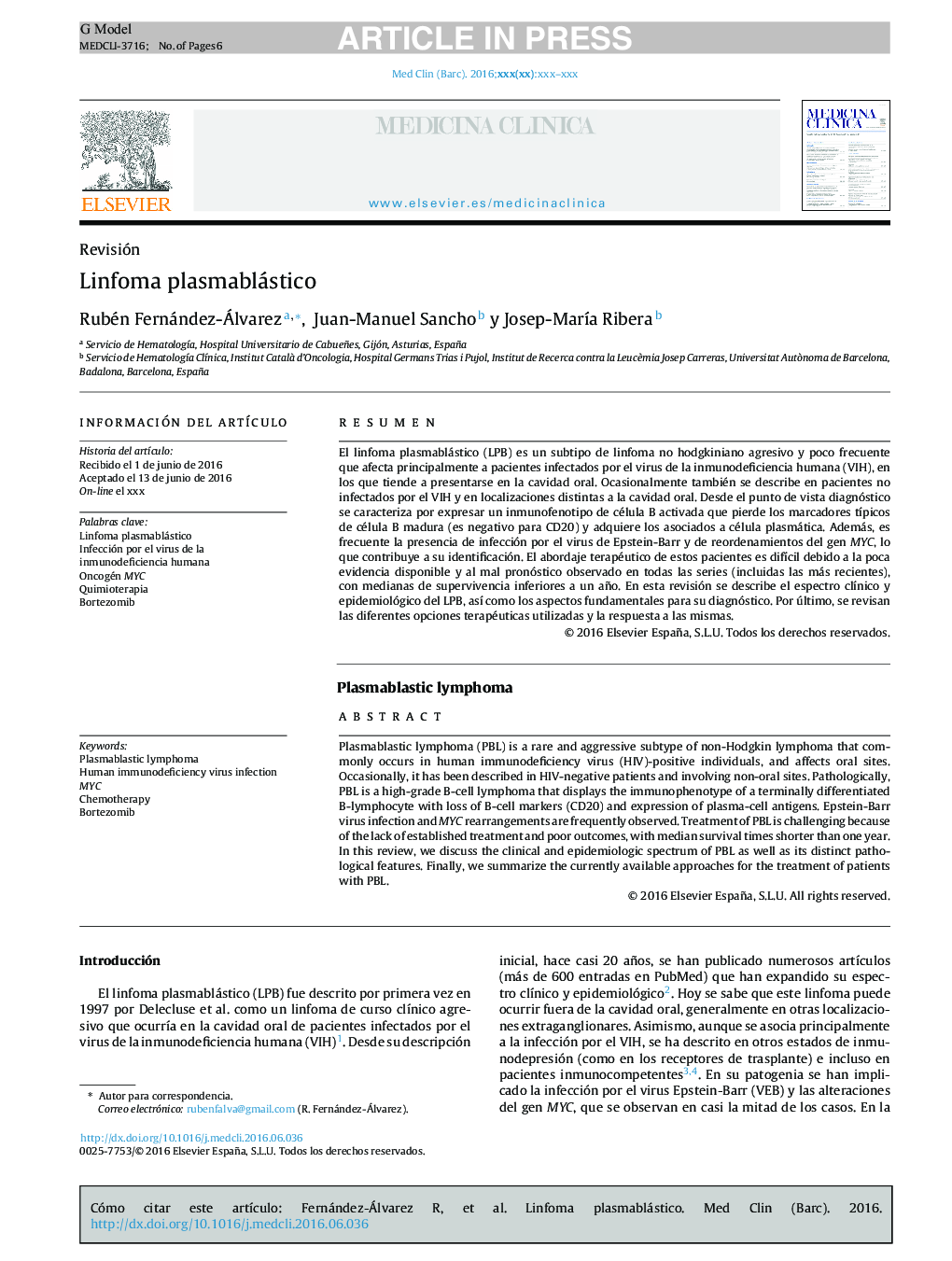| Article ID | Journal | Published Year | Pages | File Type |
|---|---|---|---|---|
| 5680984 | Medicina Clínica | 2016 | 6 Pages |
Abstract
Plasmablastic lymphoma (PBL) is a rare and aggressive subtype of non-Hodgkin lymphoma that commonly occurs in human immunodeficiency virus (HIV)-positive individuals, and affects oral sites. Occasionally, it has been described in HIV-negative patients and involving non-oral sites. Pathologically, PBL is a high-grade B-cell lymphoma that displays the immunophenotype of a terminally differentiated B-lymphocyte with loss of B-cell markers (CD20) and expression of plasma-cell antigens. Epstein-Barr virus infection and MYC rearrangements are frequently observed. Treatment of PBL is challenging because of the lack of established treatment and poor outcomes, with median survival times shorter than one year. In this review, we discuss the clinical and epidemiologic spectrum of PBL as well as its distinct pathological features. Finally, we summarize the currently available approaches for the treatment of patients with PBL.
Related Topics
Health Sciences
Medicine and Dentistry
Medicine and Dentistry (General)
Authors
Rubén Fernández-Álvarez, Juan-Manuel Sancho, Josep-MarÃa Ribera,
